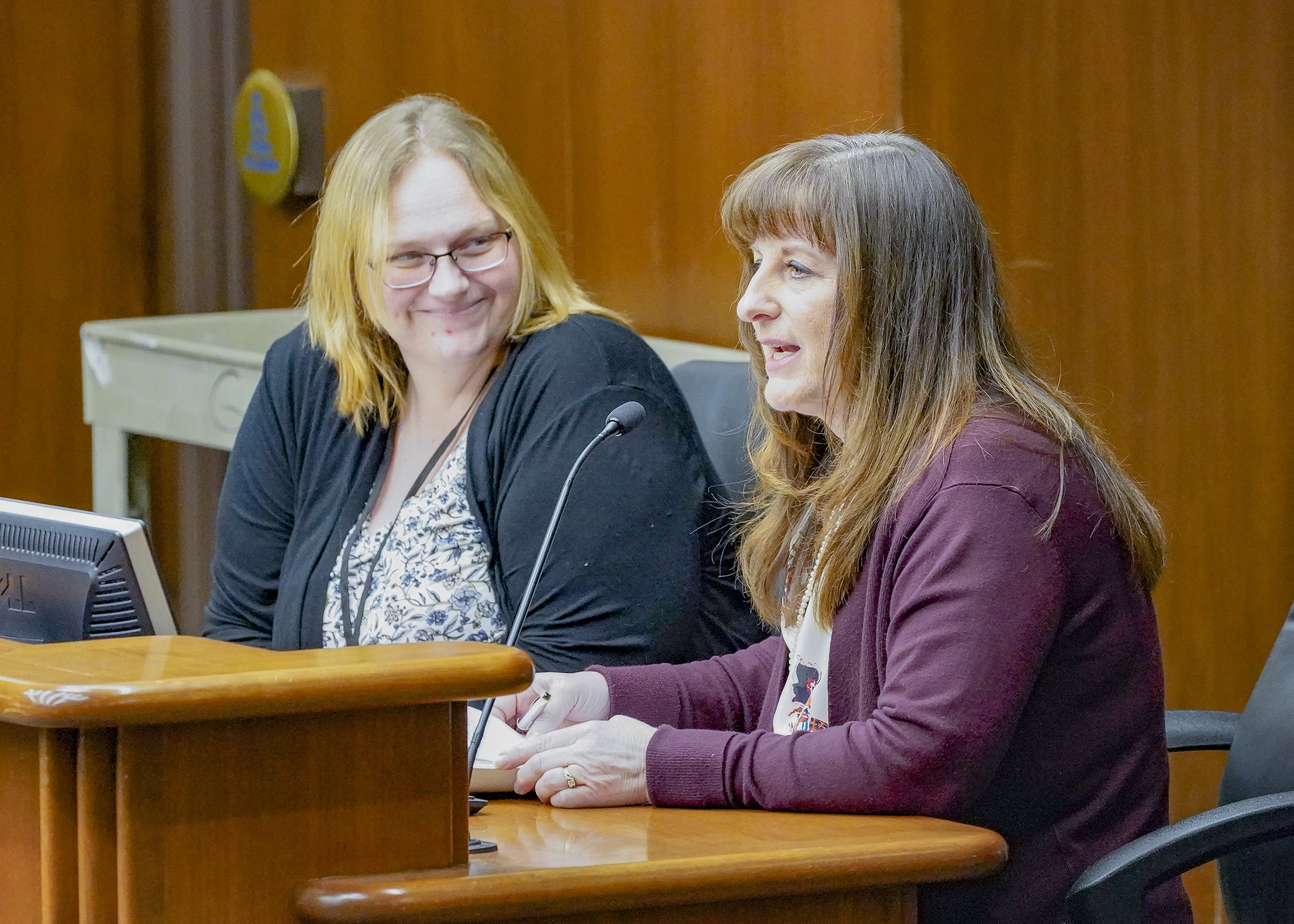Panel approves $43 million to reduce chronic staffing shortages for direct support professionals

Direct support professionals assist people with intellectual and developmental disabilities.
At least, they used to.
Without competitive pay and with a workforce shortage, several businesses and programs have permanently closed or indefinitely stopped taking new clients.
Either way, countless people with disabilities cannot receive needed services.
Sponsored by Rep. Kim Hicks (DFL-Rochester), HF813 would “provide $1,000 for recruitment and retention bonuses for every one of the 30,000 support professionals currently working and incentivize an additional 13,000 individuals to join our workforce.”
On Monday, the House Human Services Policy Committee approved the bill and sent it to House Human Services Finance Committee.
To recruit and retain direct support staff and frontline workers, the bill would appropriate $43 million in fiscal year 2024 for home and community-based workforce incentive grants. Payments of up to $1,000 for eligible workers would arrive in various forms, including direct incentive payments or child care costs.
Another $4 million would create an awareness campaign to recruit new direct support workers.
But Rep. Dave Baker (R-Willmar) believes all the money should go to the employees and the $4 million ask is “ridiculous for a marketing plan.” He worries that government programs may not be the best answer, though he appreciates the support the bill offers to these workers.
“They are not paid enough. That’s the bottom line,” Baker said.
Support professionals earn an average of $15 an hour, according to Hicks.
Jasmine Phury, a program coordinator at Bear Creek Services, said excessive hours have pushed workers to mental and physical exhaustion. “I have worked countless 100-hour weeks both as a DSP and as a supervisor,” she said.
Oftentimes on Sunday, she tells her husband, “I’ll see you Wednesday afternoon.”
Hiawatha Homes CEO Cindy Ostrowski said the nonprofit had 400 employees in 2014, 341 of whom were direct support professionals. By 2022, these numbers declined to only 254 employees, 198 of whom were direct support professionals.
Even after finding new hires, retention rates pose a new problem.
In 2021, the company hired 191 employees. But 180 left and staffing struggles reduce the organization’s ability to provide care.
Because of staffing issues, Hiawatha Homes has closed three residential homes since 2018 and consolidated individuals together; reduced from a normal 30-35 to five the people served by their out-home respite care program; and had to turn away any new clients.
Related Articles
Search Session Daily
Advanced Search OptionsPriority Dailies
Legislative leaders set 2026 committee deadlines
By Lisa Kaczke Legislative leaders on Tuesday officially set the timeline for getting bills through the committee process during the upcoming 2026 session.
Here are the three deadlines for...
Legislative leaders on Tuesday officially set the timeline for getting bills through the committee process during the upcoming 2026 session.
Here are the three deadlines for...